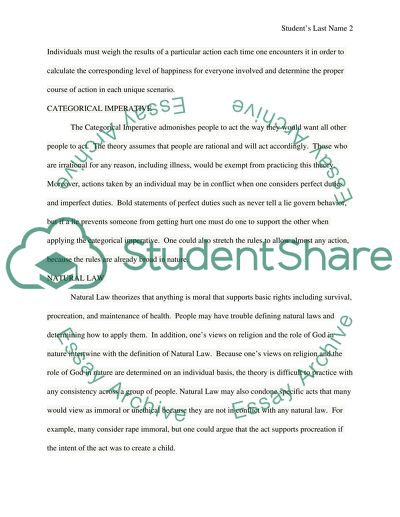Cite this document
(“Ethics Essay Example | Topics and Well Written Essays - 2000 words”, n.d.)
Retrieved de https://studentshare.org/philosophy/1392547-ethics
Retrieved de https://studentshare.org/philosophy/1392547-ethics
(Ethics Essay Example | Topics and Well Written Essays - 2000 Words)
https://studentshare.org/philosophy/1392547-ethics.
https://studentshare.org/philosophy/1392547-ethics.
“Ethics Essay Example | Topics and Well Written Essays - 2000 Words”, n.d. https://studentshare.org/philosophy/1392547-ethics.


